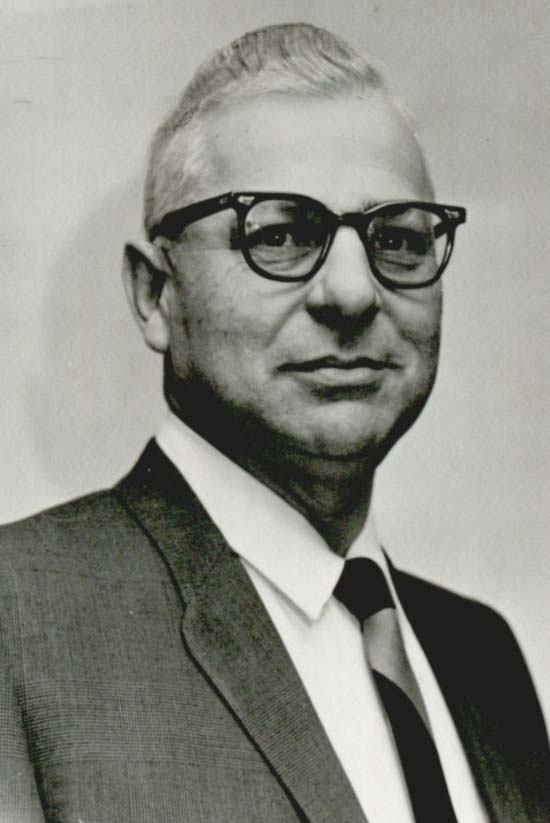
The Encyclopedia of Oklahoma History and Culture
TUTTLE, FRANCIS THEODORE (1920–1997).
Born on September 5, 1920, to Ira and Amy Franklin Tuttle in Wellston, Oklahoma, Francis Tuttle touched his state as an educator and as the "architect" of Oklahoma's vocational-technical schools. Known as Dr. Tut or Dr. Vo-Tech, he left a legacy in Oklahoma's vocational-technical system that he forged, developed, and hallmarked.
After graduating from Wellston High School, Tuttle completed a bachelor's degree in agricultural education in 1942 from Oklahoma State University (OSU). He then worked as vocational agriculture teacher in Gotebo and later in Snyder. During World War II he served in the U.S. Army infantry in the Pacific Theater of war. After completing a master's degree in school administration in 1948 from the University of Oklahoma (OU), he advanced to the job of superintendent of schools in Gotebo, Holdenville, and Muskogee.
In 1964 Tuttle became state coordinator of the Area Vocational-Technical Schools. By 1965 he had completed a doctorate in education administration from OU. In 1967 he furthered his life's passion with his appointment as state director of Oklahoma's Department of Vocational and Technical Education.
Oklahoma's involvement in vocational education originated with the Smith-Hughes Act of 1917. In the mid-1960s vocational-technical schools were still in their embryonic phase, but through Tuttle's leadership Oklahoma came to offer an ideal system and to invite national and international delegations to observe and endeavor to duplicate its success. As testament, enrollment in vo-tech programs neared one-half million at the turn of the twenty-first century, with more than 250 varied programs. The system has been an immeasurable boost to the state's economy. After he retired in 1986, Tuttle accepted the office of Oklahoma secretary of commerce, at Gov. George Nigh's insistence.
Tuttle received numerous awards, including induction into the Oklahoma Educator's Hall of Fame, the Henry G. Bennett Distinguished Service Award from OSU, and the American Vocational Association's Carl Perkins Humanitarian Service Award. The Francis Tuttle Vo-Tech Center in Oklahoma City bears his name.
Tuttle died of cardiac arrest on February 12, 1997, in Stillwater. His wife, Vivian Hughes, whom he married in 1940, his three children, and many Oklahomans mourned his death. In Tuttle's honor Gov. Frank Keating ordered all flags on state property to fly at half staff.






